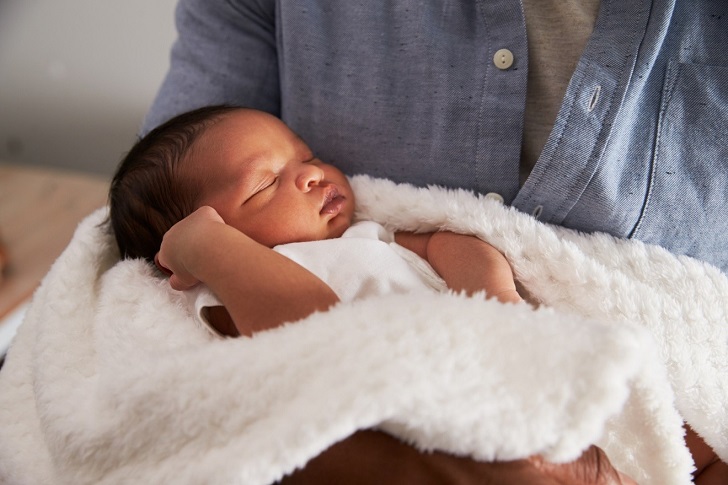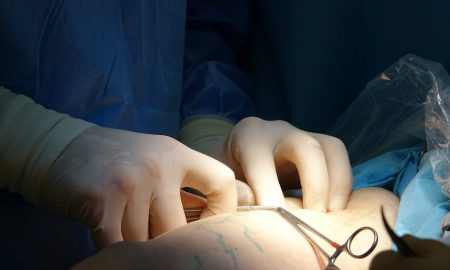
New Research Solves the Mystery Behind Hiccups, And the Results Are Astounding!

Have you ever thought about why we hiccup? For the longest time ever, the answer to this question has eluded us. But while we may not know exactly why hiccups come, we sure do know how to keep them at bay. The most common remedy is downing a glass of water, right? Others also say that scaring the individual will work.

Downing a glass of water does the trick
Vital for Development
As it turns out though, hiccups are vital for development, especially in toddlers. To think that we’ve always regarded them a menace! This new information is thanks to a study conducted by researchers from University College London.
According to their report, hiccuping serves to send large brain signal waves in newborns, helping them regulate how they breathe. Kimberley Whitehead was the research team’s leader, and he confirmed their findings via a press statement.
Admitting that they didn’t entirely figure out where hiccups come from, he, however, said that their findings revealed that they serve a developmental purpose, as already stated.
The Whitehead-led study was interested in infant brain scans, with the team establishing that on average, newborns spend up to 15 minutes hiccuping, daily. They also established that the action presents itself early in pregnancy, with fetuses aged just nine weeks having hiccups.
For their tests, the research team attached electrodes to the test subjects’ scalps as well as other sensory tools on the toddlers’ torsos, all to track present contractions during hiccuping.

For newborns, hiccups serve to develop breathing functions
When the baby eventually did hiccup, the scientists noted that the ensuing contractions would trigger a significant brain cortex response. As they put it, the first response would always be two massive brainwaves, followed closely by a third one.
They, therefore, concluded that the baby’s brain links the hiccups with subsequent contraction, and that way develops and learns breathing patterns.
Confirming this while talking to the press, Lorenzo Fabrizi, one of the scientists in the team said that by hiccuping, the toddler’s brain learns how to monitor muscles that control breathing, and eventually, respiration becomes a voluntary function in the sense of directing the diaphragm.
Crucial Milestone
Going on, Fabrizi confirmed that at birth, circuits that control and process sensations are yet to fully develop, and establishing them fully is one of the most crucial milestones newborns undergo in their development.
Well, we now understand that hiccups are necessary in infancy, but what about in adulthood? These scientists have an answer for us, although they don’t claim that it is the gospel truth. They seem to think that hiccupping is just a leftover reflex from childhood.

Breathing into a paper bag helps
Whitehead spoke about this, describing hiccupping as a vestigial reflex that stays with us even after achieving its function while we were newborns. They may be a nuisance, but there’s no getting rid of them. Thanks to this study though, we know that they haven’t always been meaningless.
According to Mayo Clinic, ways in which you can stop your hiccups include holding your breath, breathing into a paper bag, gargling some ice water, and of course, sipping large amounts of cold water.
They also go on to explain some of the causes, including drinking beverages too fast, eating too fast, smoking a lot, alcohol consumption, and even chewing gum. Watch out for these, will you?
More in Medical Conditions
-
Hematoma vs Bruise: What Is the Difference?
When it comes to injuries, hematoma vs bruise are often used interchangeably, but they refer to different medical conditions. Understanding the...
June 12, 2024 -
What Is Unipolar Depression? Here’s What You Need to Know Right Now
Depression casts a long shadow over many lives, with symptoms that affect everything from our energy levels to our ability to...
June 7, 2024 -
A Comprehensive Guide on How to Heal Anxious Attachment Style
If you often find yourself seeking constant reassurance from your partner or requiring endless validation to feel secure, you may be...
June 1, 2024 -
Why Is My Skin Peeling on My Face After Skincare? Here’s What You Need to Know
Experiencing skin peeling on your face after implementing a skincare routine can be perplexing and frustrating. This phenomenon, where the skin...
May 23, 2024 -
What Is a Mental Edge, and How Do You Get It?
Have you ever wondered why some individuals seem unshakably confident under intense pressure, finding a way to excel when it matters...
May 15, 2024 -
When to Worry About Varicose Veins? Here’s What You Need to Know
Varicose veins are a common issue, affecting about 20% of adults. They’re usually seen as unsightly blemishes on the legs but...
May 12, 2024 -
Why Is Discipline Important: The Ultimate Guide to the Importance of Discipline
Discipline is undoubtedly one of life’s most crucial character traits. It shapes how we approach tasks, manage our time, and...
May 3, 2024 -
Have I Fallen Out of Love or Am I Depressed? Everything You Need to Know
Have I fallen out of love or am I depressed? You’re not alone in this query. In the diversity of human...
April 26, 2024 -
What Does Lung Cancer Breath Smell Like?
Cancer is one of the most formidable diseases of our time, characterized by the uncontrolled growth of cells that invade and...
April 20, 2024















You must be logged in to post a comment Login